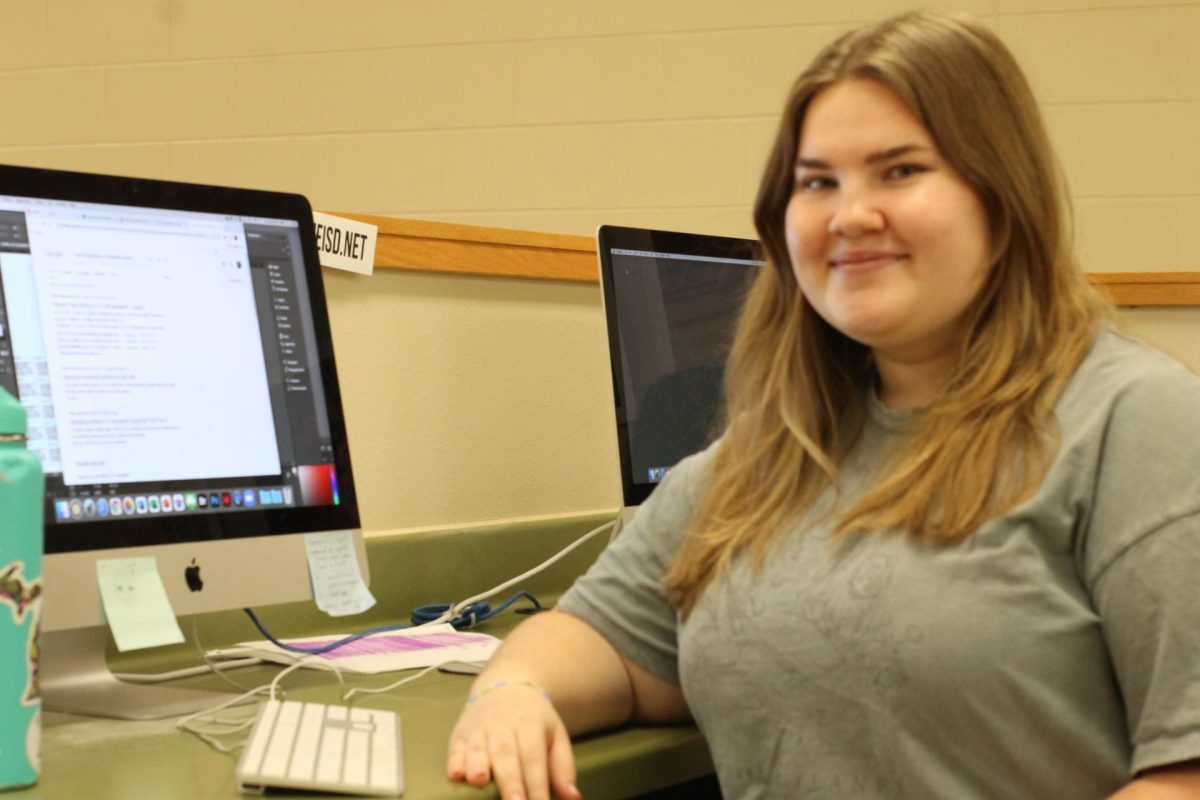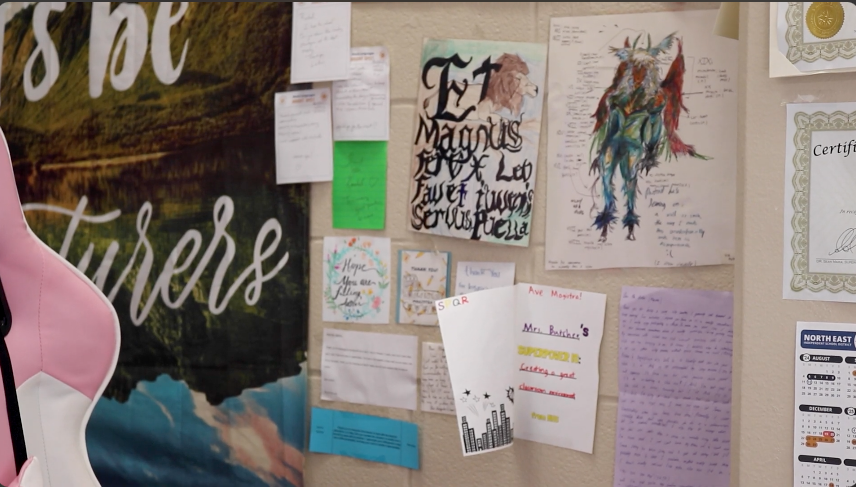by Chloe Jordan | feature editor
For senior Donna Manninen, moving to Texas meant more than just adjusting to the humid weather. While other students are able to play the system with stacking AP classes, timing didn’t align with the choices that would help her graduate Summa Cum Laude. Moving from Baltimore, Maryland, Manninen has spent her last two years in high school trying to catch up with the rest of her class.
“Adjusting to Johnson was pretty different because I came from a school of about 1300 kids and moved to a school with about 3000,” Manninen said. “It was just different based off of the class size and not only that, it was not a big culture change, but there’s a lot more diversity here than in Baltimore.”
According to Manninen, her previous schools didn’t have as many military kids as Johnson. She views Johnson as a refreshing and opportunity-bearing high school. However, she wasn’t able to participate in the clubs and extracurriculars she wanted to, after being told she must focus on the required credits instead.
“I had to take human geography as a junior, and I had to take chemistry as a junior, and I just had to take those random courses with underclassmen,” Manninen said. “I still have to take random courses with underclassmen, like world history and physics and it kind of sucks, but you kind of have to do it to get it out of the way, I guess.”
Manninen’s school in Baltimore didn’t offer a weighted GPA with multipliers or the same rank system NEISD does. She felt unaware of the system, until she realized AP courses and multipliers were emphasized at Johnson.
“I came here and everybody’s like ‘yeah, I have over a 100 GPA’, and I was like ‘you can do that?’,” Manninen said. “And, it kind of sucks because I felt kind of handicapped in a way when I came here because I didn’t feel like I had as many opportunities or as many advantages as everybody else.”
Manninen made it past the mark for Magna Cum Laude, with a GPA of approximately 96. The contributing factor preventing her from the title of Summa Cum Laude was not having enough AP classes in her belt to carry the multipliers needed for the expected GPA.
“Another thing my school omitted was class rank. You didn’t compare yourself with others as easily as you didn’t get assigned a number, which I liked a little better,” Manninen said. “It sucks because I never had AP class experience and my junior year was the hardest for me because I just threw myself into AP classes to try and catch up with everybody.”
Manninen’s school in Baltimore required 23 credits. Johnson accepted every credit she received from her other school, except for P.E., since it’s a year’s worth of credits. She is currently taking Spanish V Honors, Yearbook, Physics, AP Stats, AP World History, and AP English IV to fulfill the rest of her courses to graduate.
“I like Johnson a lot better than my old school for sure. People are nicer here. East coast people are so mean and they’re all clique-y,” Manninen said. “I don’t really get that, but I moved here and everybody was like ‘hi, I moved here too because I’m military’ and I’m like ‘hey, no way’. But I love this school and I love the teachers and it’s a really good school. There’s some things I don’t like, but that’s okay.”
Even though Manninen feels secure about her GPA, she still struggles with comparison and striving for the best grades. She describes it as ‘unfair’ because she feels she could have reached Summa without interruptions like moving and COVID during her high school experience.
“I have so many friends that are Summa and they have over a 100 GPA and I can’t help but compare myself to them because I didn’t know what it was and it’s kind of new,” Manninen said. “I guess I could have tried harder, but along with virtual school and moving in the middle of the year, my grades were going to be pretty bad.”
She believes it would have been easier moving during her freshman year and adjusting to the new GPA system. Manninen also disagrees with the current endorsement system.
“I hate endorsements. It doesn’t make any sense, because why can’t we just spread out and do a variety of things, instead of sticking to one course?” Manninen said. “Because I don’t know about you, but I’m pretty indecisive and I’ll change my mind every year.”
Counselor Courtney Tarbox sympathizes with Manninen’s struggle with moving from out of state and working out GPA.
“There could be challenges with their classes and credits not being in line with our state graduation requirements, which could lead to them needing summer school or taking courses that are typically taken by younger grade levels,” Tarbox said. “It can also be difficult for them to leave their old friends and activities behind and make new connections with students and teachers at their new school.”
There are multiple ways students can be supported after moving from out of state.
“We always try to help our new students find classes, clubs, or other activities that they are interested in to help them meet new students and make friends here at Johnson,” Tarbox said. “We also utilize our student clubs like Student 2 Student, Student Council, and Unity Club to help new students feel welcomed and meet people.”








